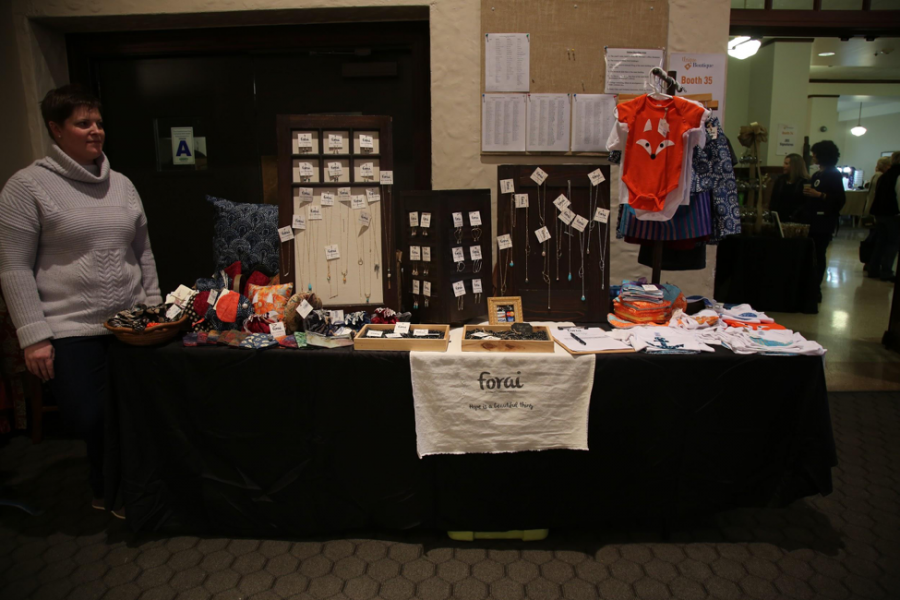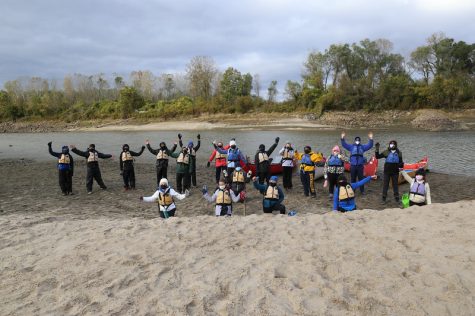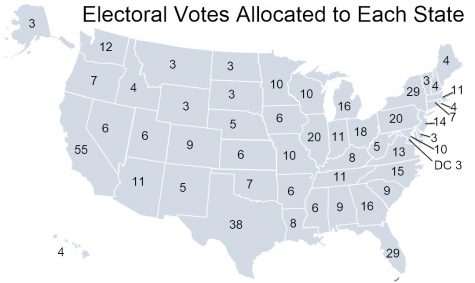forai Seeks to Support Refugees
December 10, 2017
The sign is simple, minimalistic, on it scrawled in green on a plain white background, “Hope is a beautiful thing.” The room, normally the dining hall for the students of John Burroughs School, today masquerades as an extravagant arts and crafts fair—Unique Boutique. In a space abuzz with jolly consumerism, murmurs of wonder at intricate pottery, and capitalistic entrepreneurship, this sign catches my eye. The booth, though not unlike many others in its offerings, is in fact unique. Approaching, I see that which had been blocked from my view: “forai,” the sign proclaims with boldness and an air of enigmatic mystique.
To the left of the sign stands a woman in a grey sweater peddling onesies and knit beanies. “Forai,” she tells me, “stands for ‘Friends of Refugees and Immigrants.’” She explains further that the organization is a non-profit, formed a little under ten years ago in an effort to give work to refugee and immigrant women. Each of the women who go through the program learn to handcraft specialty items such as scarves, beanies, gloves, and even onesies. According to forai’s website, the organization also helps these women to grow their own micro-businesses. Not only that, but forai provides mentors to each of the women they take on in an effort to ease their transition into the Saint Louis area.
“We take on about twelve women at a time,” she tells me, “but we have a wait list, so interest is high. Need is high.” Indeed, according to the Saint Louis Post Dispatch, the Saint Louis area expected 1,400 refugees for the 2017 fiscal year. That’s 1,400 people who need jobs, who need homes, who need to make their way in America through the gateway to the west.
Though doing so in small increments, forai is undoubtedly making a dent in issues of refugee settlement. “Settlement” is not merely finding a temporary place of residence for a family, and it’s not simply donating to groups like the International Institute. Settlement transcends bare necessities—it comes down to community, making genuine connections. Settlement is, and must be, utterly and indelibly human in its nature. We must reach out to vulnerable people without the barriers of nation. That is what makes this boutique, sat squarely in the unassuming dining hall of John Burroughs School, unique.





